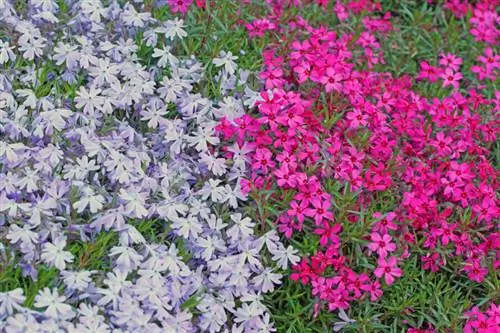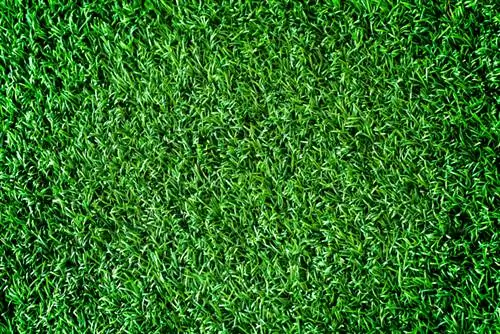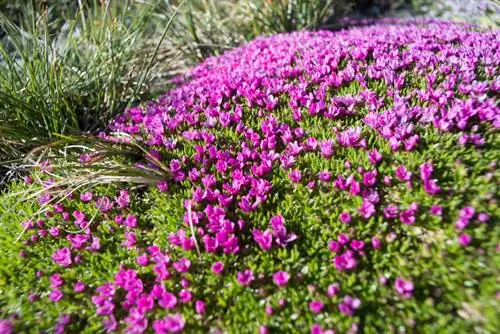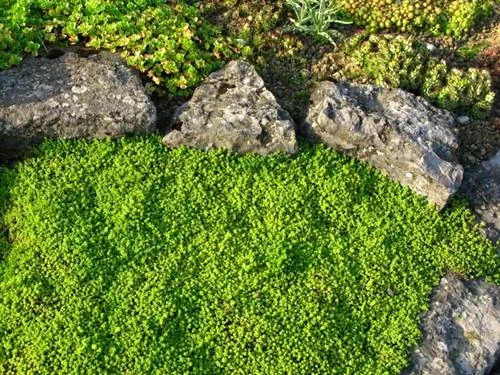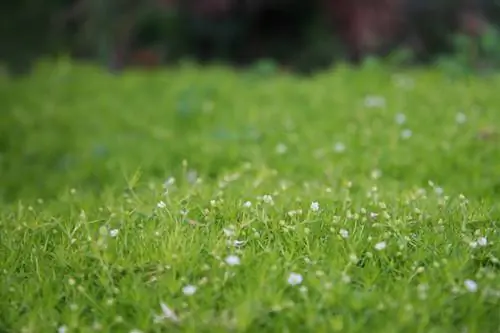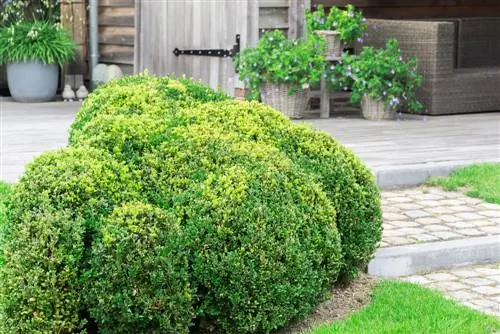- Author admin leonars@hobbygardeners.com.
- Public 2023-12-16 16:46.
- Last modified 2025-01-23 11:20.
Gardeners who want to plant a lawn substitute as an alternative to a real lawn have a few things to consider when selecting plants. Above all, the low perennials should be hardy so that a new lawn replacement does not have to be planted every year.
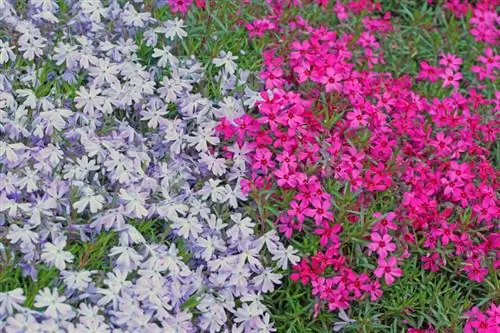
Which hardy plants are suitable as a lawn replacement?
Star moss, Roman chamomile, some varieties of feather cushion, Ysander or fat man and carpet golden strawberry are suitable as winter-hardy lawn replacements. Alternatives that are conditionally hardy include thyme and other types of feather cushions.
Winter-hardy plants for lawn replacement
- Star moss
- Roman Chamomile
- Some varieties of the plumage pad
- Ysander or Fat Man
- Carpet-Golden Strawberry
Conditionally hardy perennials
- Some varieties of the plumage pad
- Thyme
If you are not sure whether the cushion perennial you have chosen is winter hardy, ask your gardening store for advice. It's better to make the right choice right away so you don't have to plant a new lawn replacement every year.
The best planting time for hardy ground cover plants
Even plants that are normally hardy only survive subzero temperatures if they have had enough time to grow properly.
The best planting time is therefore late summer. At this time, weeds germinate much more slowly, giving plants room to spread. By winter, enough roots have formed.
The soil should be well prepared before planting. Carefully pull out root weeds such as groundweed, couch grass and field horsetail and remove as many root pieces as possible. Then you will have less work to do with the replacement lawn next spring. If the cushions have grown densely, even the stubborn root weeds can no longer penetrate the replacement lawn.
Is winter protection advisable?
For really hardy perennials, winter protection is unnecessary. It would actually be more harmful because moisture would build up under a dense cover and cause the replacement grass to rot. Light winter protection can only be useful for fresh plantings to protect the young plants from severe frost.
Plants that are conditionally hardy should only be placed in a protected place from the outset where the temperatures do not drop so much.
If winter protection is unavoidable, brushwood or fir branches are recommended. A blanket made from these branches is somewhat breathable. The plants get enough air underneath and the moisture cannot build up so much.
Tips & Tricks
Ivy can be planted as a lawn replacement in very shady places. The creeping plant does not need sun and spreads quickly over the garden soil. Ivy survives even very cold winters well.

